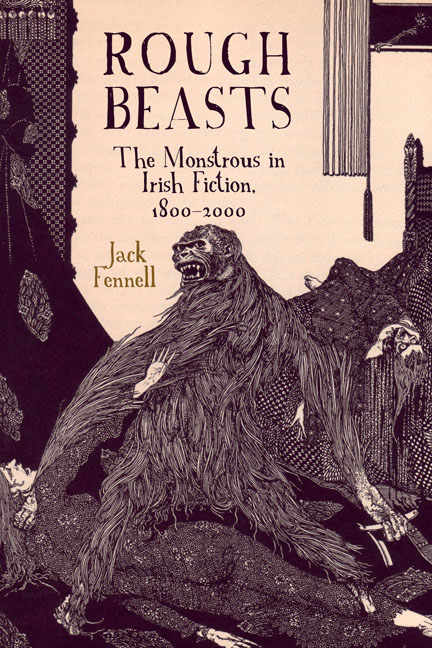Book contents
- Frontmatter
- Contents
- Acknowledgements
- 1 Introduction: In Defence of Fear
- 2 We Dare Not Go A-Hunting: Fairies, Deep Time, and the Irish Weird
- 3 Harbingers of Hunger: Famine, Cannibalism, and Hunger-Demons
- 4 From Lore to Law: Malevolent Magic and Spiritual Warfare
- 5 Ghosts, Narrative, and Noumenal Reality
- 6 Just Sign Here: Faustian Pacts, Demons, and Chaos
- 7 The Undead Generations: Zombies, Vampires, and the Corporeal Undead
- 8 Breeding Breaks Out: Shape-Shifters, Cryptids, and Cunning Animals
- 9 Haunted Spaces and Monstrous Lairs
- 10 Conclusions
- Bibliography
- Index
3 - Harbingers of Hunger: Famine, Cannibalism, and Hunger-Demons
- Frontmatter
- Contents
- Acknowledgements
- 1 Introduction: In Defence of Fear
- 2 We Dare Not Go A-Hunting: Fairies, Deep Time, and the Irish Weird
- 3 Harbingers of Hunger: Famine, Cannibalism, and Hunger-Demons
- 4 From Lore to Law: Malevolent Magic and Spiritual Warfare
- 5 Ghosts, Narrative, and Noumenal Reality
- 6 Just Sign Here: Faustian Pacts, Demons, and Chaos
- 7 The Undead Generations: Zombies, Vampires, and the Corporeal Undead
- 8 Breeding Breaks Out: Shape-Shifters, Cryptids, and Cunning Animals
- 9 Haunted Spaces and Monstrous Lairs
- 10 Conclusions
- Bibliography
- Index
Summary
In Irish literature there is a recurring tendency to personify hunger itself as an adversary, and in Gothic and horror literature more generally dread and revulsion are invoked through altered forms of sustenance: most fictional monsters prey upon humans in one way or another, and the fear of becoming a monster is often linked to necessarily abhorrent changes in one's appetites. The act of eating is suffused with moral questions, from food taboos (such as cannibalism) to the consumption of animals and issues of sustainability, so it is hardly surprising that it would feature prominently in such an emotionally charged genre.
The central element of this chapter will be a look at the gothic and monstrous legacies of the Irish famines. The Great Famine (1845–52) in particular can be read as a horror narrative, because it effectively ‘ended history’ by wiping out the last remnants of Gaelic culture. Chris Morash argues that the catastrophe defies narrativisation; cultural representations of the event do not often progress beyond a collection of disconnected images, such as the corpse with the grass-stained mouth, ditches full of dead bodies and hunger as “a stalking Skeleton” (Morash 114).
It is hardly surprising, given the multiple famines in Ireland's history, that hunger assumes the status of a character in itself in Irish culture, and its power is all the more pronounced for the fact that its impact was aggravated by human folly. Like some traditional iterations of the vampire, the Great Famine wrought havoc on its victims after being ‘invited in’, as laissez-faire economics created a set of conditions that maximised the destructive impact of Phytophthora infestans, the fungus-like organism that causes potato blight.
Prior to the Act of Union, 85 per cent of Irish exports went to Britain, and 75 per cent of imports came from Britain (Bew 63), making Ireland perilously dependent on British trade. Following the Union, manufacturing industries in Ireland started to stagnate as the market was flooded with cheaper English goods, and the practices of rack-renting and absentee landlordism exacerbated the problem by creating a flow of capital out of the country, leaving little for local investment; the “notable and significant exception” to this landholding system was Ulster (Lloyd 1987, 55), which would become the main industrial centre of the entire island.
- Type
- Chapter
- Information
- Rough BeastsThe Monstrous in Irish Fiction, 1800–</I>2000, pp. 50 - 74Publisher: Liverpool University PressPrint publication year: 2019



